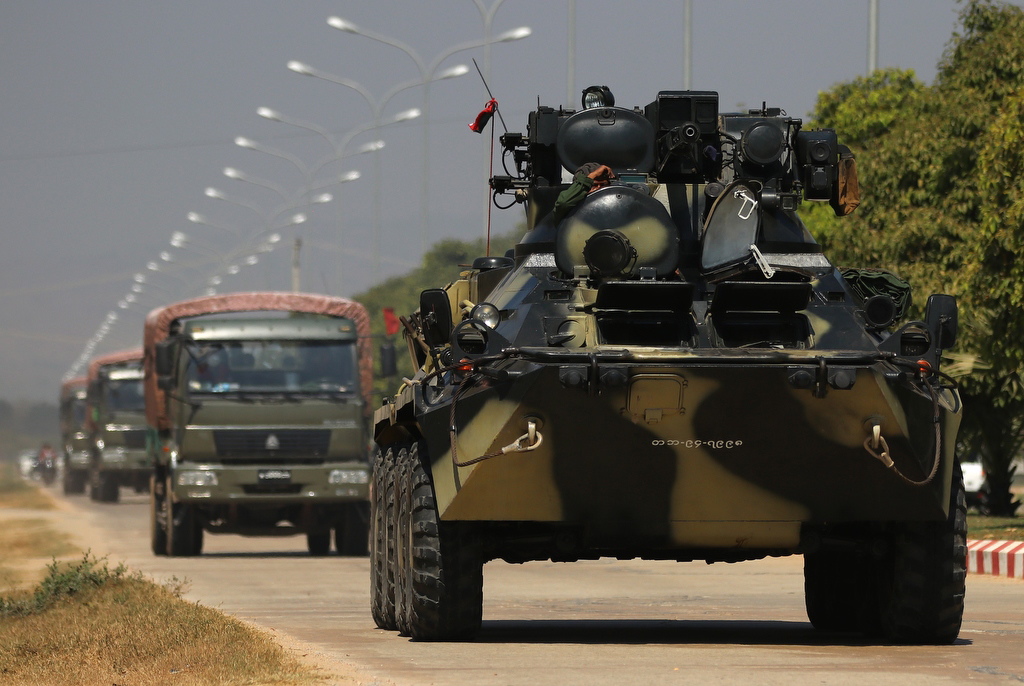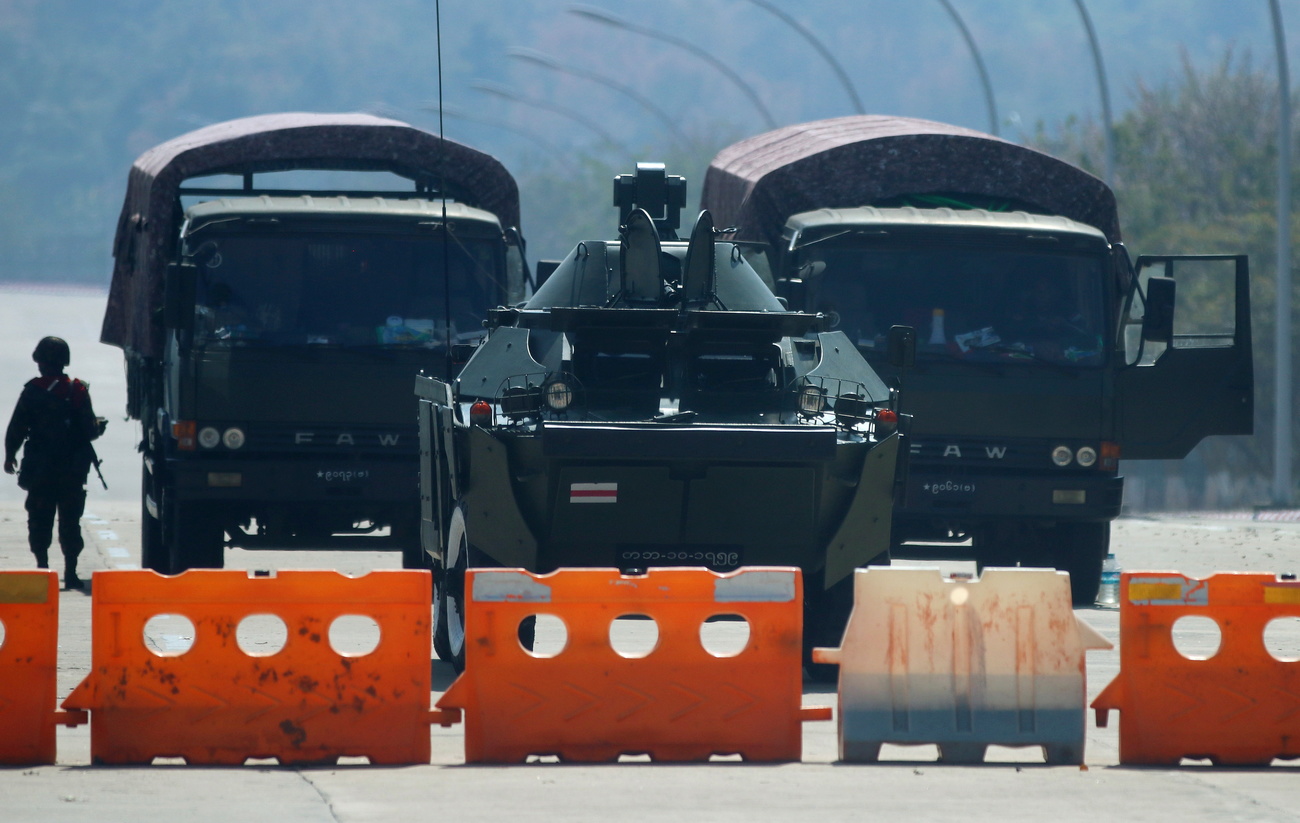
Coup in Myanmar: What can the UN do?

The UN Human Rights Council has called a special session this Friday on Myanmar, amid increasing concern about the situation and warnings issued to the country’s military coup leaders.
On February 1, Myanmar leader, Aung San Suu Kyi, and members of her party were detained by the military which declared a year-long state of emergency. The coup came following a general election which Ms Suu Kyi’s National League for Democracy (NLD) party won by a landslide.
Among the many voices of condemnation comes one from the Independent Investigative Mechanism for Myanmar (IIMM), a Geneva-based UN evidence-gathering body for serious crimes in Myanmar. Can this organisation actually make a difference?
“I sincerely hope for a peaceful resolution of the current crisis and I note calls made by the Secretary-General to the military leadership to resolve any differences through political dialogue,” IIMM head Nicholas Koumjian said in a statementExternal link. “However, should serious international crimes and violations of international law be committed, rest assured, the Mechanism will collect the evidence and, in accordance with our mandate, we will build case files to facilitate criminal trials to hold those responsible to account in international, regional or national courts.”
In the absence of justice for crimes notably against Myanmar’s Rohingya Muslim minority, the IIMMExternal link was set up by the UN Human Rights Council in September 2018 to gather and preserve evidence for possible international or national trials in the future. A 2018 UN reportExternal link said Myanmar’s army chief Min Aung Hlaing, who is now in charge of the country, and five other top military officials should be prosecuted for “genocide, crimes against humanity and war crimes”.
Although concentrated particularly on alleged genocide against the Rohingya, the IIMM’s mandateExternal link is wide and ongoing, covering “the most serious international crimes and violations of international law committed in Myanmar since 2011”. It cannot bring trials itself, but says it is sharing evidence with the International Criminal Court, which has opened an investigation in relation to Myanmar, and with the International Court of Justice, where the small West African state of Gambia has brought a genocide case against Myanmar.
Condemnation
In a February 4 statementExternal link, the UN Security Council expressed “deep concern” over the military takeover in Myanmar. It called for the immediate release of elected leader Aung San Suu Kyi and President Win Myint. This is a watered down version of a previous proposed statement which was blocked by China, a long-time ally of neighbour Myanmar.
There have been plenty of condemnations and warnings, including from Swiss UN envoy to Myanmar, Christine Schraner Burgener. She fears that in coming days civil unrest and clashes between Suu Kyi’s NLD party and the military-supported Union Solidarity and Development Party (USDP) could result in the situation becoming more volatile.

More
Myanmar faces “catastrophe”: Swiss UN diplomat
UN High Commissioner for Human Rights Michelle Bachelet said on February 1 that she was “gravely concerned” about the situation in Myanmar. “Given the security presence on the streets in the capital as well as in other cities, there are deep fears of a violent crackdown on dissenting voices,” she said. “I remind the military leadership that Myanmar is bound by international human rights law, including to respect the right to peaceful assembly, and to refrain from using unnecessary or excessive force.”
Human Rights Council session
The UN Human Rights Council has also announcedExternal link it will hold a special session on Myanmar on February 12. It is being held at the request of the UK and European Union, but their request is supported by 47 states, including Switzerland and the US, which has pledged to re-engage with the Human Rights Council under the new administration of Joe Biden.
NGOs also welcomed the move. Human rights group Amnesty International, for example, said the special session was a welcome first step but called for concrete action. “It is critical that the international community uses all the tools at its disposal to respond to the Myanmar military’s assault on human rights,” said Amnesty InternationalExternal link. “Myanmar’s military leadership includes alleged perpetrators of crimes against international law, and they cannot be allowed to continue to commit abuses unchecked.”
So the world is watching. And the IIMM’s message is that Myanmar’s military leaders could one day be brought to justice.

In compliance with the JTI standards
More: SWI swissinfo.ch certified by the Journalism Trust Initiative






























You can find an overview of ongoing debates with our journalists here . Please join us!
If you want to start a conversation about a topic raised in this article or want to report factual errors, email us at english@swissinfo.ch.